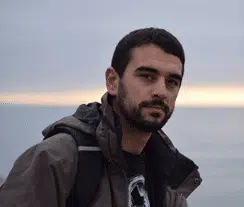

Invited Speaker
Dr Evangelos Ntontis
Lecturer in Social Psychology, School of Psychology and Life Sciences Canterbury Christ Church University
Certificate of attendance available
Climate change is increasing the prevalence and impact of extreme events, which may have severe psychosocial aftereffects for the people and communities who are affected. To mitigate their impact, governments advocate developing community resilience. Most approaches to community resilience employ the concept of social capital, suggesting that communities with more dense preexisting networks of trust and reciprocity are more likely to prepare for, respond to, and recover more effectively from disasters. Notwithstanding the benefits of the social capital approach in explaining aspects of community resilience, I will argue that social capital cannot account for microprocesses of disaster behavior regarding the mobilization of communities and the emergence of groups in absence of pre-existing bonds or networks. Using empirical research I will demonstrate how community resilience theorizing can benefit through insights from the social identity approach in social psychology and principles of collective psychosocial resilience—the way that shared identification allows groups to emerge, coordinate, express solidarity, and provide social support. Overall, I will argue that this approach can overcome the limitations of social capital because it can explain the processes of group behavior in disasters, promotes bottom-up approaches to community resilience, recognizes emergent communities, and suggests evidence-based recommendations for policy and practice. The links between social capital and the social identity approach will also be discussed.
About the presenter:
I completed my undergraduate studies in Philosophy, Education, and Psychology at the University of Ioannina in Greece (2009-2013), and subsequently did an MSc in Psychological Research Methods at the University of Dundee (2014-2015). Between 2015-2018 I completed my PhD at the University of Sussex through a scholarship provided by Public Health England. In my doctoral research I examined how community group emerge and respond to flooding, and how group processes in disaster behaviour can be useful for community resilience policy and practice. Since 2018 I am a lecturer in social psychology at the School of Psychology and Life Sciences at Canterbury Christ Church University, UK. My general interests include collective behaviour in disasters, social movements, leadership, and mass mobilization. Recently I developed an interest in how systemic issues can operate as stressors that can exert a negative influence on mental health and wellbeing. I am an advocate of mixed methods research and use both qualitative (discursive, phenomenological) and quantitative (survey, experimental) approaches to data collection and analysis.
About Our Webinar Series
This event is part of our regular webinar sessions for social capital researchers including PhD/master students. These sessions include invited presentations from prominent scholars as well as presentations by PhD students and experts in professional practice.
For social capital researchers, these sessions are an opportunity to hear about the latest social capital research and insights from scholars working on the concept. They can be a great way to connect with people, to get advice, discuss ideas or issues, get suggestions for literature to read, or you can just listen.
Are you researching social capital and want to present your research? Click here for more information and to submit a proposal.
Generally, presentations can be 20 to 30 mins. The content of your presentation will depend on your research stage.

